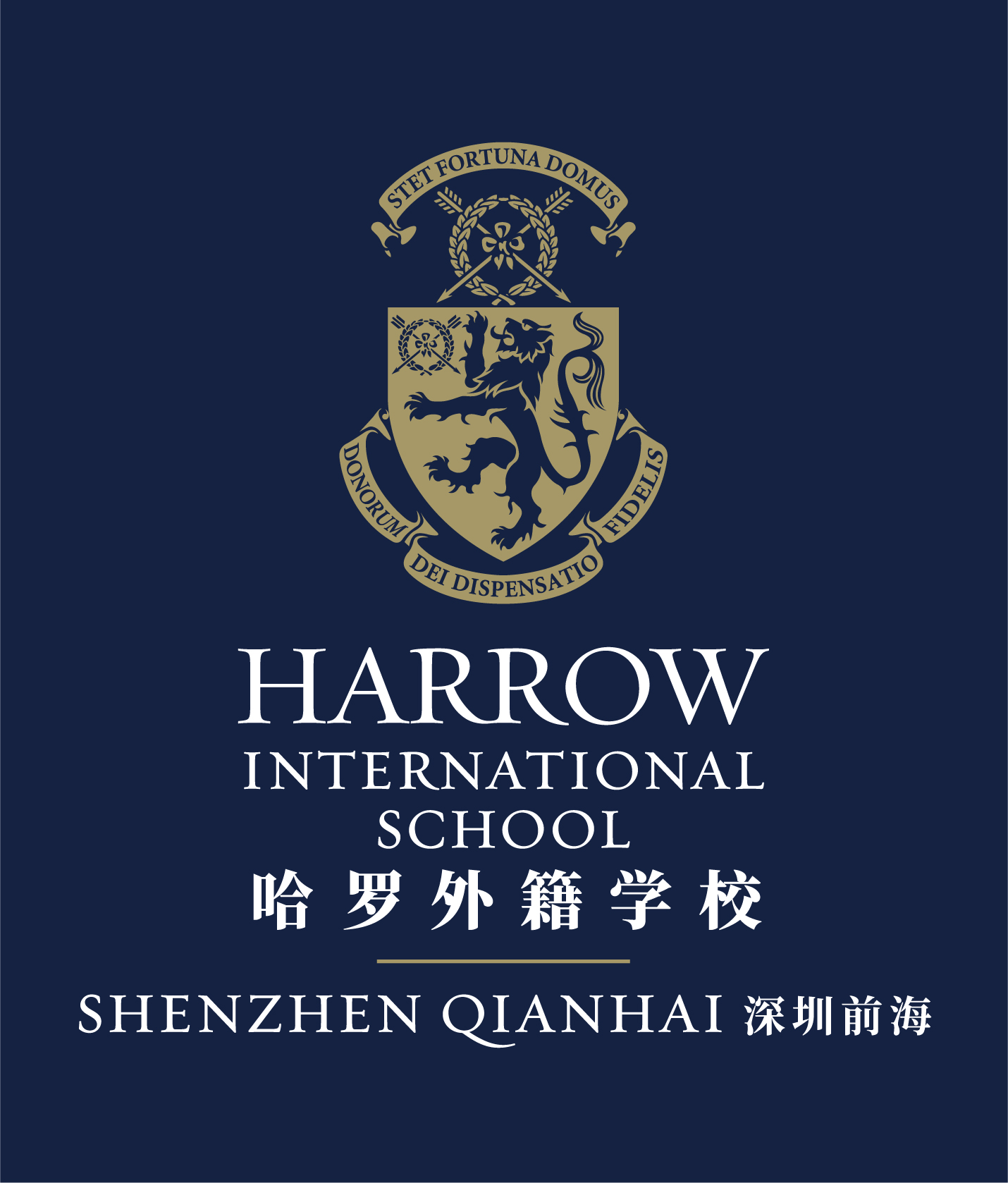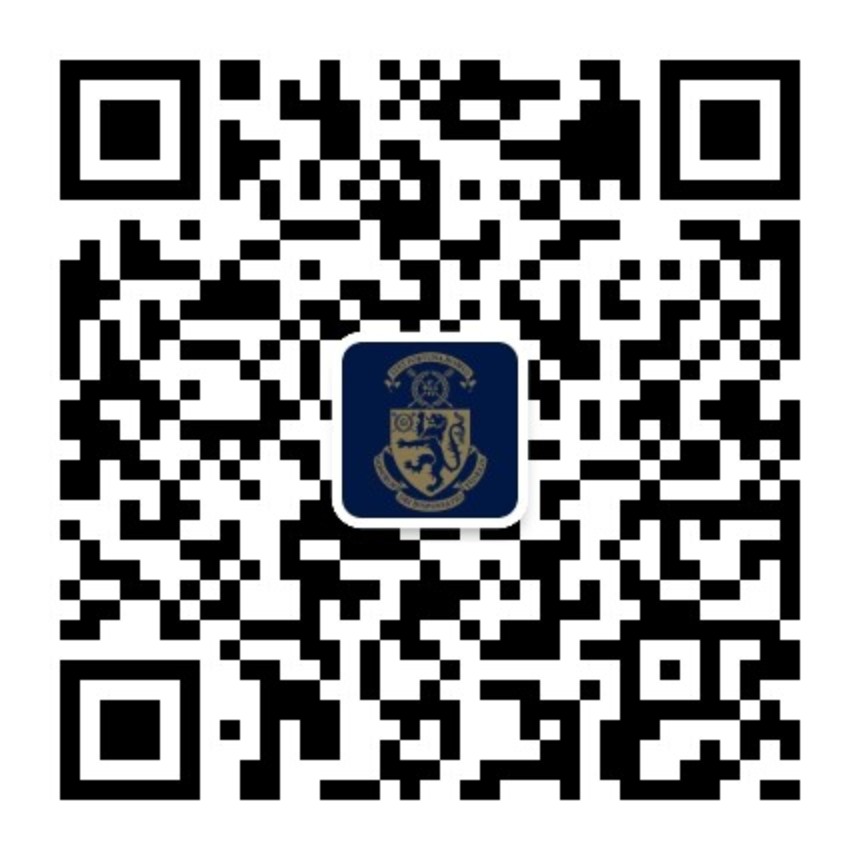Here is a summary of the most common feedback and question that any International School has heard across, drawing inference from parents.
- How is the curriculum designed?
- How are subject gradings arrived at and how is this process made objective?
- What do the report grades mean?
- How do teachers assess students’ work at Harrow Shenzhen?
- What part does English Language Proficiency play in academic success at Harrow School?
On 10th June we held a Parent Workshop and invited Mr Stephen Tong, Director of Studies Harrow Shenzhen, who attempt to provide audiences and broad overview of the approaches adopted in the Upper School; and Miss Jessica Pooley-Litt , Head of English and Languages Harrow Shenzhen, who will provide some real illustrations of assessment in practice, drawing upon her current work in the English Faculty, and outline importance of developing students’ English proficiency, sharing Global Scale of English.

Mr Stephen Tong
Director of Studies Harrow Shenzhen

Miss Jessica Pooley-Litt
Head of English and LanguagesHarrow Shenzhen
After the Parent Workshop, both Stephen and Jessica, alongside with our senior leadership team including Mr Kevin Qian, Chinese Principal Harrow Shenzhen, Mr Nigel Schofield, Head of Upper School and Ms Angela Dai, Communication Manager, joined the panel discussion to talk about academic rigour and Harrow’s commitment in academic excellence with participating parents, both onsite and online.
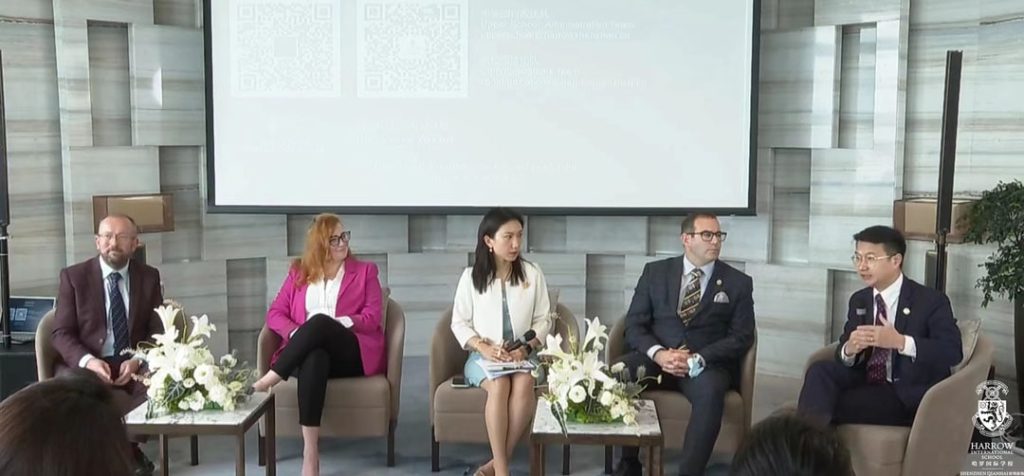
People from left to right are Stephen, Jessica, Angela, Nigel and Kevin
Let’s explain a bit about how Harrow teachers work in Upper School at Harrow Shenzhen. They will, first of all, plan the sequencing of the curriculum or schemata. This is what students will learn and in what order. This curriculum or long-term plan will also define what it is that we expect students to be able to do by the end of each year group and at what age. From this, individual teachers will then plan and deliver their lessons.
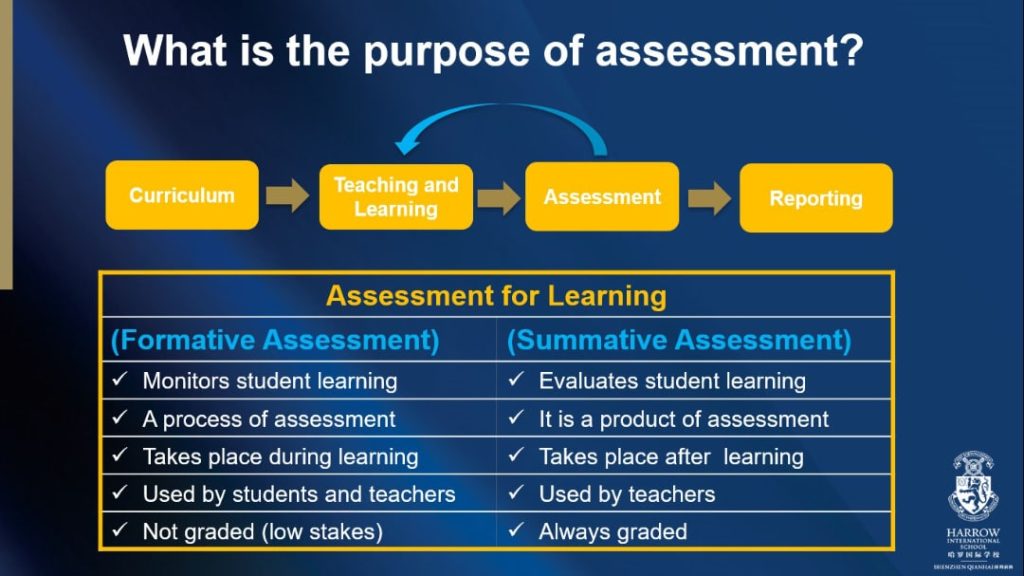
As they observe the children learning, as they question the students about their understanding and as they mark their work, teachers will be assessing the students’ learning. What can they do and what can they not do. What do they understand and what needs to re-taught, or what needs to explained in a different way. What needs more practice. This is process of looping back to the students and the teacher is called ‘assessment for learning’ or ‘formative assessment’. It is the teacher’s greatest tool in securing deep student learning where things are committed to long term memory and can be applied as well as recalled.
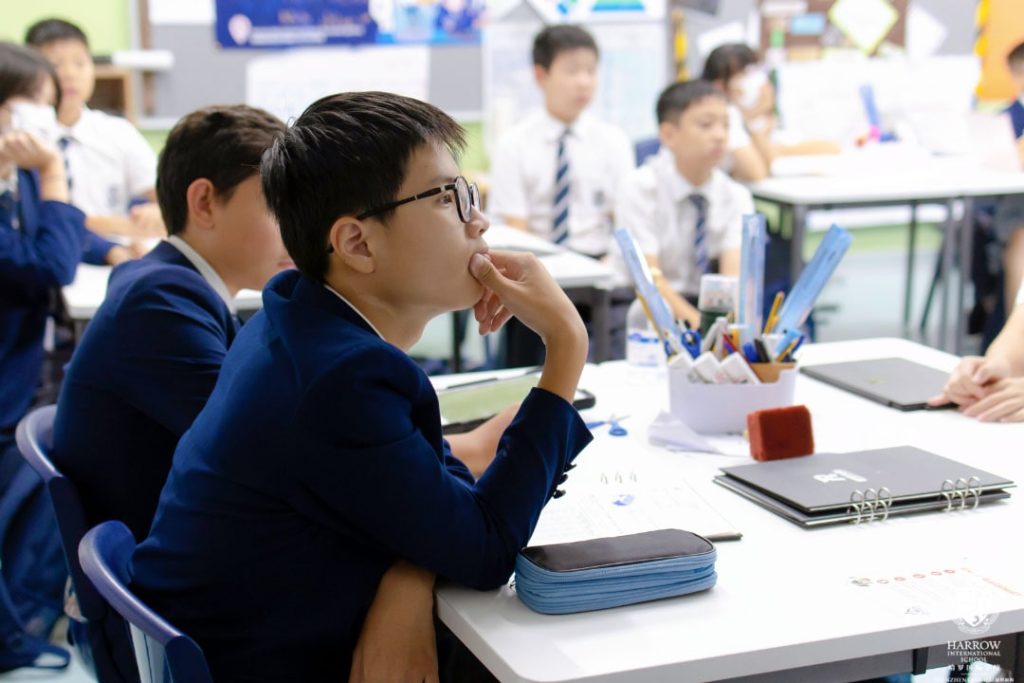
Over time, we can then look at student’s work in a more comprehensive and holistic way and make a more general assessment of their attainment. Typically, this ‘summative assessment’ or ‘assessment of learning’ comes in the form of a grade and is the one that is reported to you at the end of the term. Twice a year, this is supplemented with a set of examination grades which also assess everything that has been learnt to date.
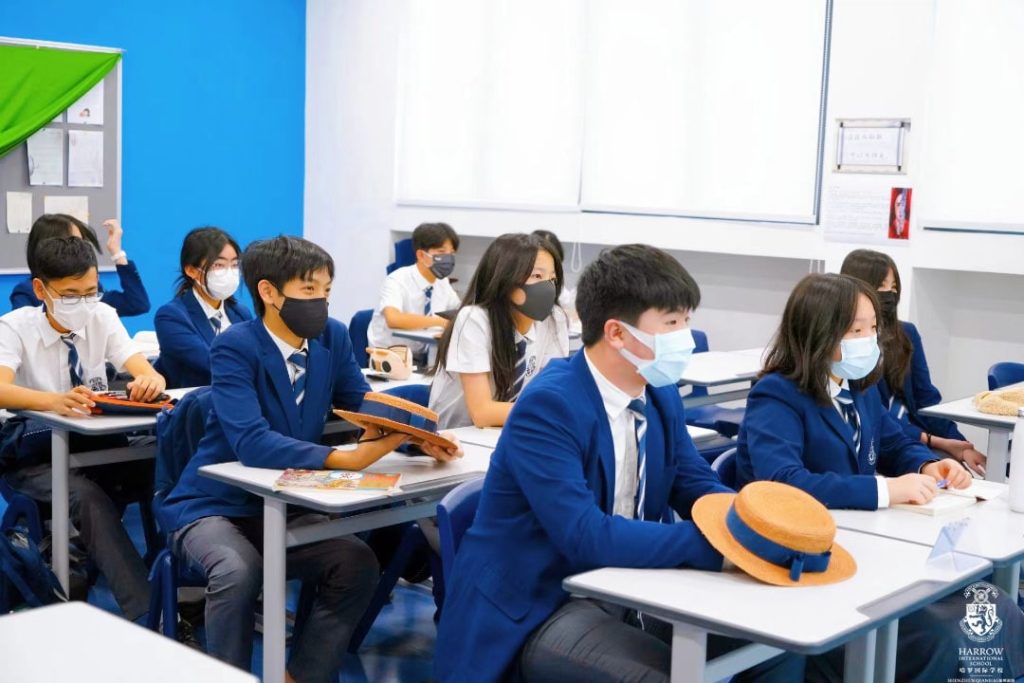
Assessment of Learning
Next we are about to talk about the grades and what they can mean to students. The first thing to understand is that teacher assessments are not subjective. When a curriculum is designed there will be a number of standards which describe what students can or cannot do. For example, Mr Stephen knows the alphabet, Miss Jessica can touch her toes, Mr Nigel can play a three-bar blues on the guitar. When these standards or expectations are applied to age and year group, they effectively become a set of absolutes. Or age-related expectations. It will look a bit like this (points to graphic) with knowledge, skills and understanding mapped over time across the year groups. It is a bit of behind-the-scenes teacher business that should give you every confidence about what we do.
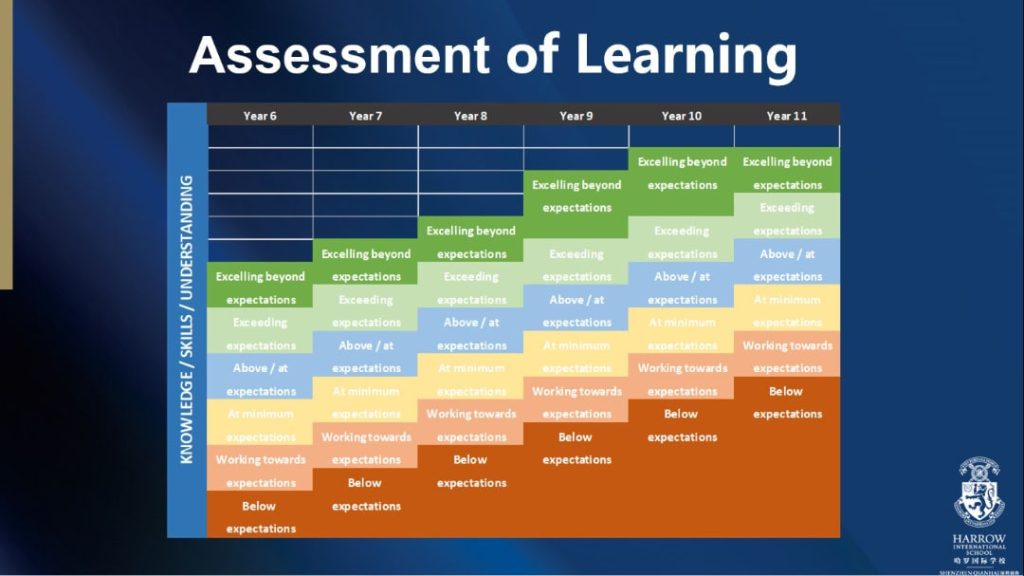
When teachers award your son or daughter a grade for the term they will therefore do so, basing their judgement on many different pieces of work. They will also do so, by looking at the expected standards for each year group. They will then use these definitions for each grade.
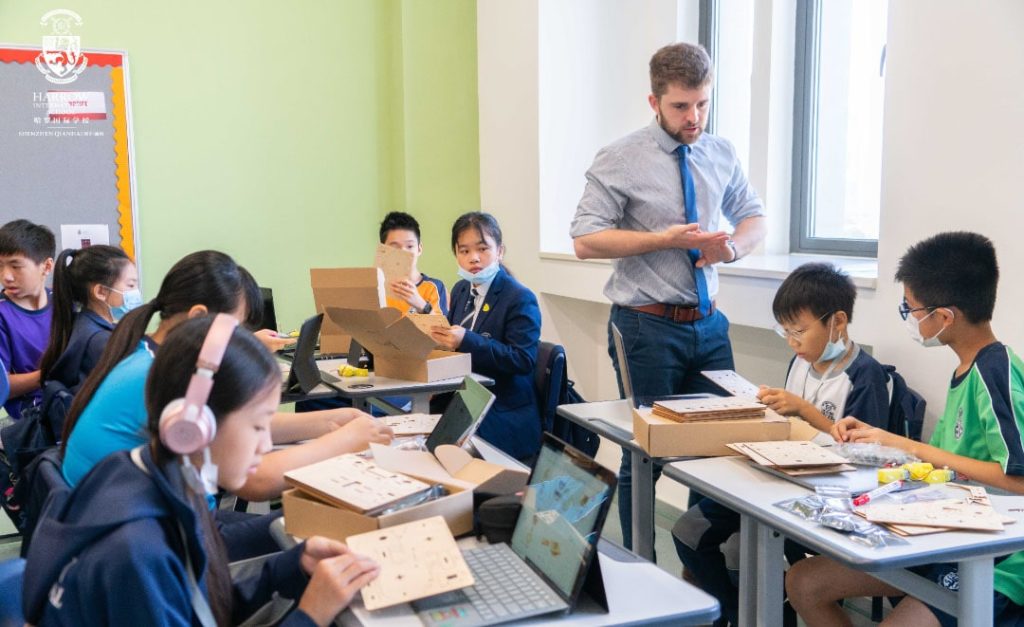
Loads of parents must have been wondering how you can work out about where your child ranks.When you plot a set of absolute expectations across a whole cohort statistically you will get a Bell Curve distribution as illustrated here. So, if you look at all children following the UK curriculum you might get this. With a meeting expectation (minimum for us) in the middle. C grade at the median point. And here over to the right is here we find ‘Happy Harrow’ where we want all of our students to be be.
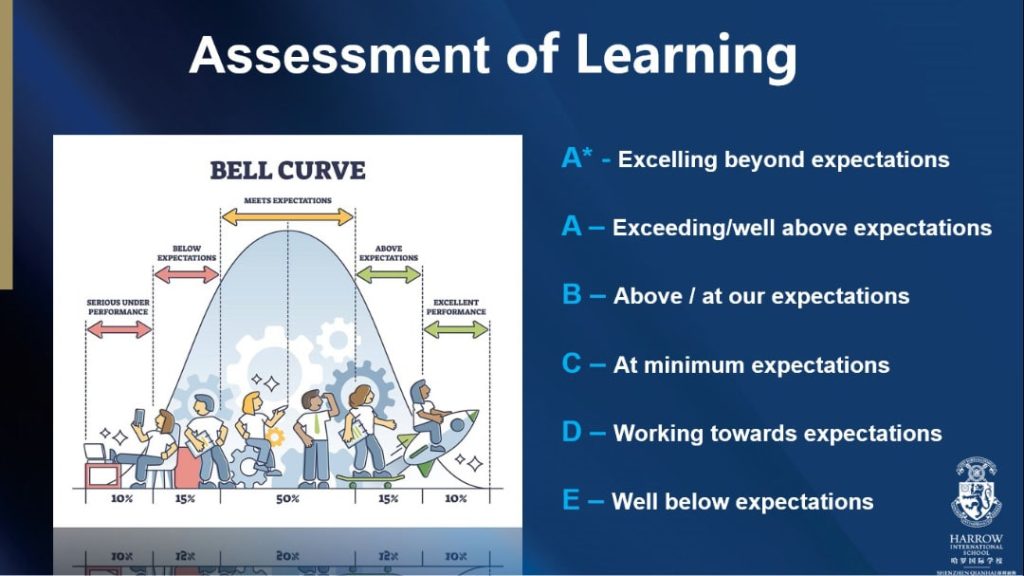
Teacher “Subjectivity”
Let’s take English subject as an example to look at it in practice, and find out how we assess fairly in English and how this assessment prepares students for academic success.
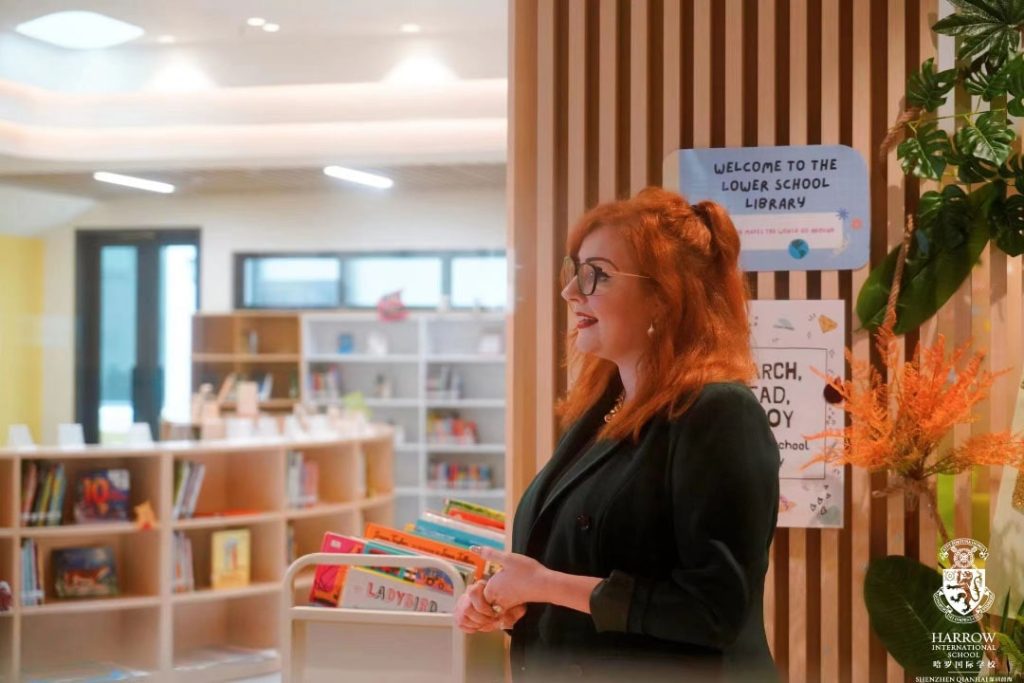
The first area for concern can be how students in different classes can achieve fair grades. Well firstly, we have our Harrow Standards for each year group. Regardless of their class, teacher, amount of time in the school, favourite fruit or zodiac sign, each Harrow Student must meet these expectations. These absolutes are tracked back from A-Level and IGCSE to ensure that by the time they reach these external assessments, they are equipped to thrive. All teachers within a subject work to this same framework, therefore an A Grade is not ‘well above Miss Litt’s expectations’, but it is ‘well above the expectations for any Harrow student’.
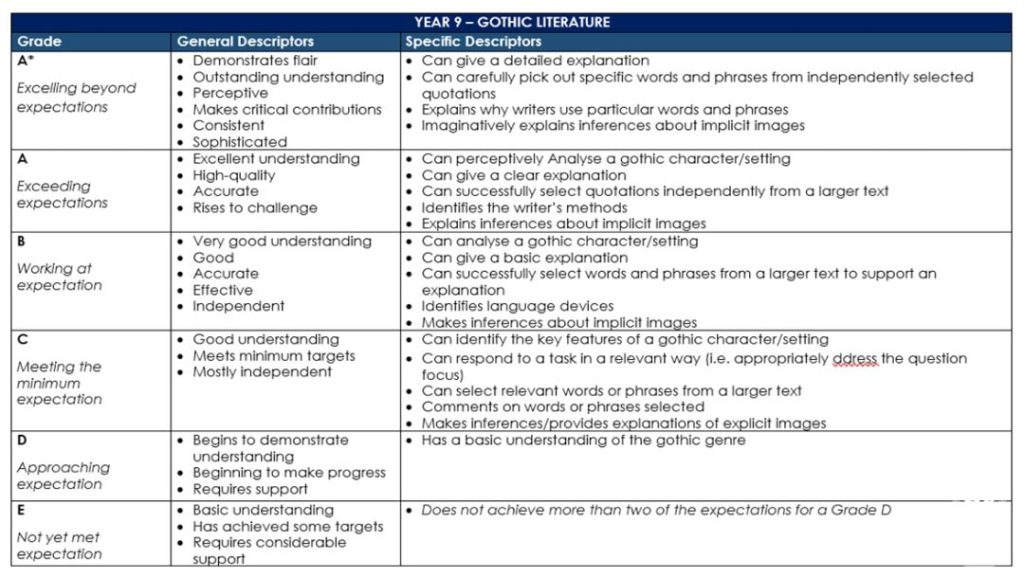
Once the teachers have decided what these expectations are, these different skills are then meticulously planned into the schemes of work, homework and lessons your son or daughter accesses, so that whatever class they are in, they are given access to the same learning content which will then be assessed at the end of the year.
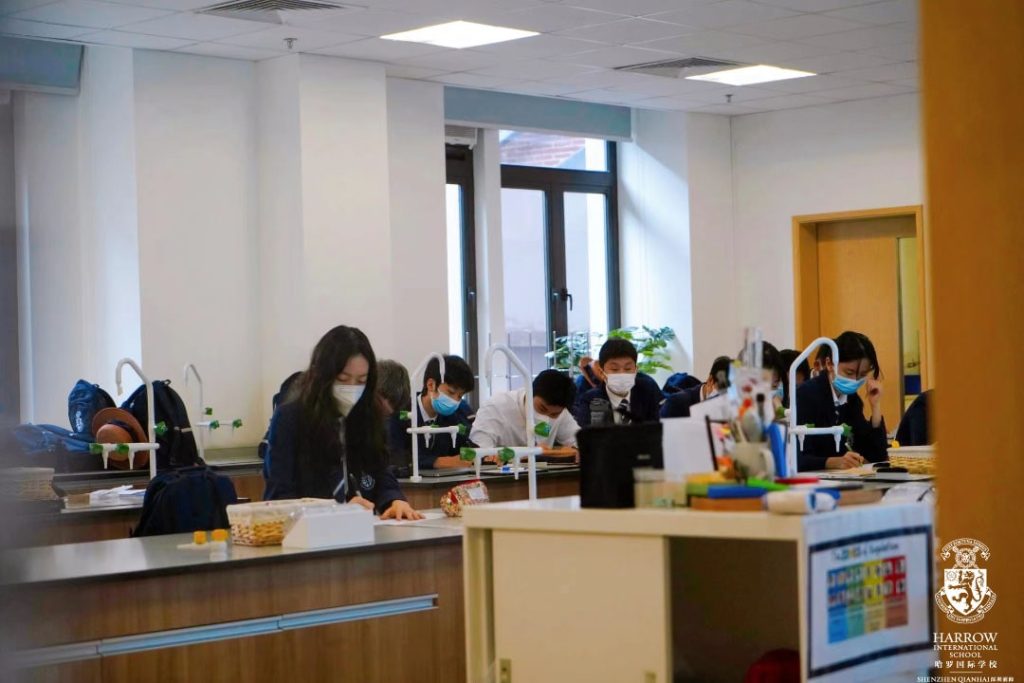
If we take our Happy Harrow B for English in this unit, you can see the top skill is analysis of a character or setting. Therefore, no matter the class, in the first week of learning, students are introduced to the structures and routines needed for analysis. This skill is then built and developed throughout the unit to hopefully elevate students from the B grade.
About The Global Scale of English
As parents at Harrow Shenzhen, we know that you understand the importance of developing our Harrovians’ English proficiency. Many of our students will leave us with fluency in English and Chinese, and this will open innumerable doors for them in the future.
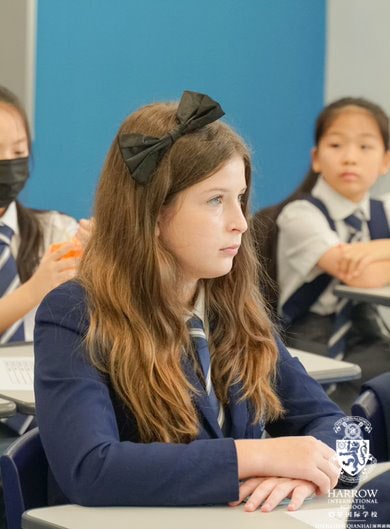
As well as equipping them for success in later life, in a practical sense, their proficiency in English will need to be at a certain level in order for them to gain places at some of the world’s most prestigious English-speaking universities. The Global Scale of English does not give them that qualification.
It is a tracking tool used throughout the Harrow family and it is an example of Assessment for Learning – it informs teachers about skills gaps and areas for improvement.
Once we are confident that our students’ proficiency (and age) are at the right level, we can enter and recommend them for a range of qualifications such as the IELTS and TOEFL exams, which are examples of Assessment of Learning.
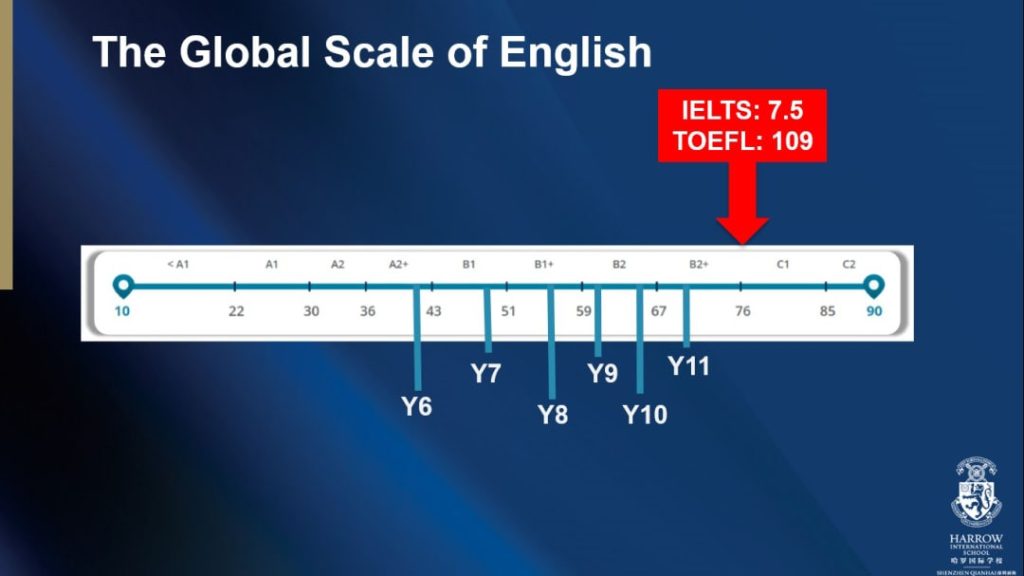
In order for your child to study at a world-leading university, they need to achieve at least a 7-7.5 on the IELTS examination, or 104-109 on the TOEFL. As a family, Harrow have mapped this back on the GSE, so we can see where your child should be at each year. This way, they are constantly developing their proficiency, and not being expected to cram the learning at the end.
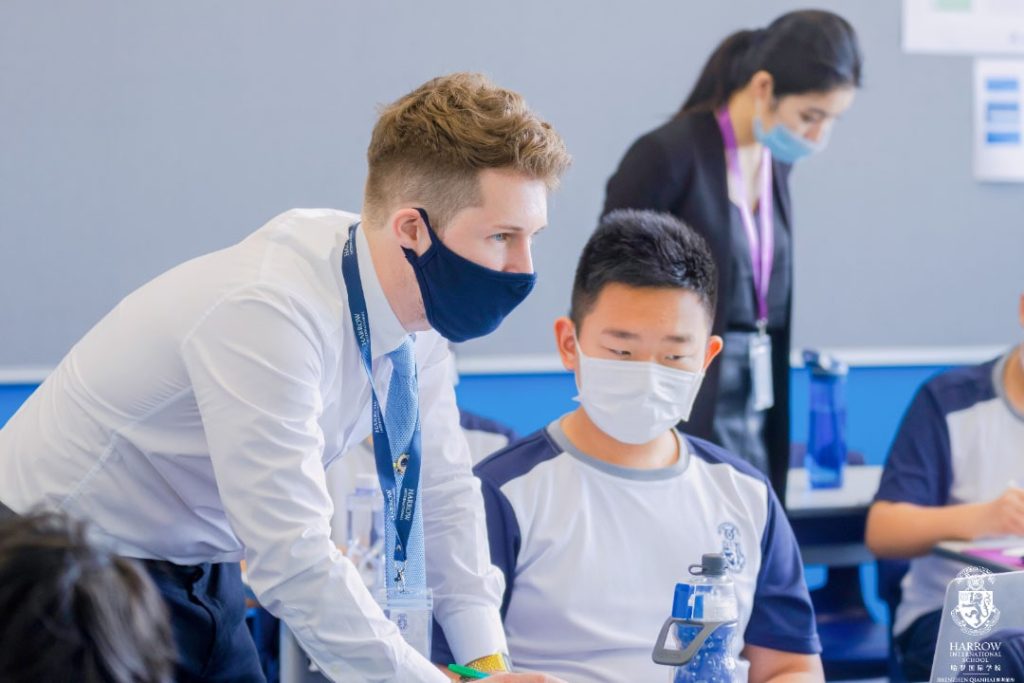
Your child’s GSE score is important. To us. We use this score to assign interventions and catch-ups, to target work so that the curriculum is accessible, to provide them with the language and learning support they need to achieve their desired IELTS result. It is not a score or qualification they have achieved, but a moveable point on a scale.
Therefore, instead of focusing on what a child’s GSE score is, we should instead be asking how to develop them and how to support their language acquisition. Here are top three recommendations as follows.
1.Facilitate English conversations with your child.
2.Provide opportunities for them to read and listen to English.
3.Finally, please emphasise the importance of using English within school.
At Harrow Shenzhen we are a listening school.We are very interested in what our students and our parents think and say about us.It is our school, after all.By listening actively and communicating ever more strongly, we know that we can build a formidable partnership with a collective vision that will ensure that our students, your sons and daughters, attend, engage fully with, and matriculate from, the highest performing, most rounded education establishment in the city. We look forward to meeting you again on campus very soon.

